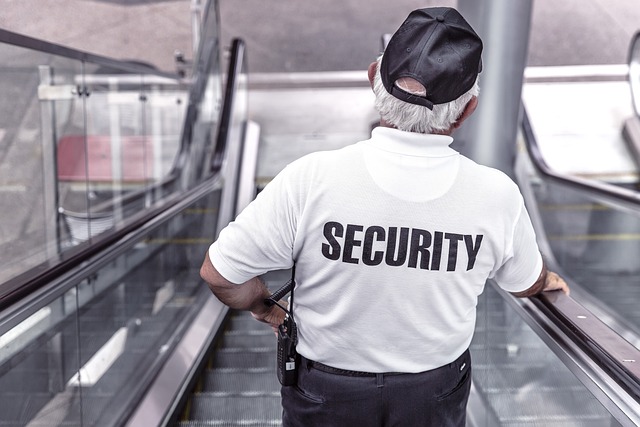Understanding cultural norms through travel security consulting is vital for avoiding offensive behaviors and reducing security risks while traveling. Local customs, political climates, and social dynamics vary widely, and engaging with reputable consultants and locals helps tourists navigate these differences safely. Building trust fosters authentic experiences and enhances travel security, ensuring memorable trips free from vulnerabilities. Travel security consultants guide clients through cultural nuances, promoting responsible travel and mitigating diplomatic tensions through ethical practices.
Cultural awareness is essential for safe and enriching global travels. Understanding local norms, recognizing potential security risks, and building trust through local connections can significantly enhance your journey. This article offers practical guidance on these aspects, focusing on strategies from a travel security consulting perspective. Learn how ethical practices and respect for cultural boundaries contribute to secure and meaningful adventures abroad.
Understanding Cultural Norms: Key to Safe Travel
Understanding cultural norms is a critical aspect of travel security consulting. When visiting a foreign country, what might be considered polite or acceptable behavior in your home culture could be entirely different and even offensive in another. For example, gestures that are common in one region may hold a completely different meaning or be misunderstood altogether in another. Similarly, social cues like eye contact, personal space, and attire norms vary widely across cultures.
Travellers who prioritize cultural awareness can significantly reduce security risks. By respecting local customs and practices, you demonstrate sensitivity and open yourself to genuine connections with locals. This not only enriches your travel experience but also makes you less of a target for malicious actors who might take advantage of your unfamiliarity with the local environment. A thorough understanding of cultural norms is, therefore, an invaluable asset in any travel security consulting context.
Recognizing Potential Security Risks Abroad
When traveling, especially to foreign countries, it’s crucial to be aware of potential security risks that might differ from your home environment. Many travel security consulting firms emphasize the importance of understanding local customs, political climates, and social dynamics. This knowledge can help travelers avoid situations that may seem harmless but could pose significant dangers. For instance, certain gestures or behaviors that are acceptable in one culture might be offensive in another, creating misunderstandings and putting individuals at risk.
Avoiding security risks abroad requires a proactive approach. Travelers should stay informed about current events, local laws, and cultural norms through reliable sources. Engaging with locals or consulting travel experts can provide valuable insights into potential hazards and safe practices. By recognizing and understanding these risks, travelers can make informed decisions, ensuring their safety and a more enriching travel experience.
Building Trust: Local Connections and Resources
Building trust while navigating unfamiliar cultural landscapes is a cornerstone of effective travel security consulting. Establishing strong local connections can significantly enhance safety and accessibility for travelers. This involves forging partnerships with reputable locals, who can provide insights into regional customs, potential risks, and hidden gems often overlooked by tourists. By leveraging these relationships, travel security consultants can offer clients more authentic and secure experiences.
Local resources are invaluable assets in mitigating security risks. These may include trusted guides, accommodation providers known for their integrity, or community leaders willing to assist. Consultants who integrate these resources into travel plans ensure clients not only enjoy a culturally enriching journey but also minimize exposure to vulnerabilities, making their trips safer and more memorable.
Ethical Practices: Respecting Cultural Boundaries
When traveling, especially for business or with a focus on cultural learning, understanding and respecting local customs is paramount. This aspect is often overlooked in discussions about travel security consulting, yet it’s a cornerstone of responsible global engagement. Each culture has its own set of unspoken rules and boundaries that can be easily infringed upon by outsiders without malicious intent. For instance, certain gestures, dress styles, or even direct eye contact might hold different meanings across cultures.
Travel security consultants play a vital role in educating travelers about these nuances to avoid unintentional offenses. They provide valuable insights into local etiquette, helping clients navigate cultural landscapes with sensitivity. By embracing ethical practices and prioritizing cultural awareness, travelers can enhance their overall experience while ensuring they don’t inadvertently contribute to security risks or diplomatic tensions through insensitive behavior.
Cultural awareness and ethical practices are essential aspects of international travel, offering both rewards and challenges. By understanding local norms, recognizing potential security risks, building trust through local connections, and adhering to responsible tourism principles, travelers can enhance their experiences while minimizing potential hazards. Engaging with diverse cultures requires sensitivity and open-mindedness, making every journey a unique opportunity for personal growth and global understanding. Travel security consulting services play a vital role in equipping individuals with the knowledge and resources needed to navigate these complexities safely and responsibly.
